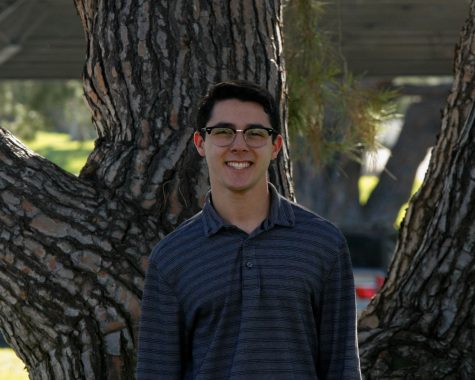A Spoonful of Socialism
May 6, 2019
When liberal public servants call for the government to take a more active role in protecting the most disadvantaged among us, Republican politicians dismiss these programs as “socialism.” Too often, many Democrats shy away from this label, fearing that it might inaccurately portray their beliefs or cost them votes.
However, rather than retreating from an opportunity to put forth a counternarrative, Democrats should embrace the fight, and communicate to the public how many of the utilities that improve our lives every day are government-funded, so-called “socialist programs.”
The government using money efficiently to improve the lives of the most disadvantaged in our communities makes our society better, and our nation stronger.
Without socialism, we would have no affordable healthcare. Approximately 61 million people are on Social Security, and chances are that one member of a family of four is on Social Security (National Academy of Social Insurance).
Without socialism, we would have no accessible public education. Of the 56.6 million students attending elementary school and secondary school in the fall of 2018, 50.7 million of them are public school students (National Center for Education Statistics).
About 222 million people in the United States have a driver’s license as of 2016 (Statista). And where would these licensed drivers drive without government-funded roads?
Without socialism, we would have no affordable public housing for those in need of shelter. According to the National Center for Health in Public Housing, there are over 2 million Americans that live in public housing, along with an additional 4.7 million Americans living in Section 8 housing (in which vouchers offer housing assistance to low-income families and assist them in paying for housing). Of those living in public housing, 37% are children, 16% are seniors, and 36% are disabled. This website went on to state that for seniors living in public housing, 55% of them have Social Security as their “primary source of income.”
When you consider these statistics, it is evident that socialism is the lifeblood of the United States. Anyone that has a family member on Social Security is benefiting from socialism. Anyone that goes to a public school or sends their children to public school is benefiting from socialism. Anyone with a public library, fire department, or police department in their city is benefiting from socialism. Anyone that has ever been on a road or a bridge is benefiting from socialism.
An excellent indicator of whether or not unregulated capitalism works is the 2018 World Happiness Report. In the past three years, Denmark, Norway, and Finland have been deemed the happiest nations in the world. These countries have scored well in six categories: income, life expectancy, social support, freedom, trust, and generosity.
The happiest countries also have more immigration than average, and the rates of happiness among immigrants is about the same as happiness among the rest of their inhabitants.
Interestingly enough, the report stated that wealth was not a significant factor in determining the happiest nations. The 2018 World Happiness Report stated that the happiest countries had, “a more balanced set of social and institutional supports for better lives.”
The American Declaration of Independence declared that we have the right to “life, liberty, and the pursuit of happiness.” However, the facts show that the United States is failing in this pursuit, due to the problems we are experiencing and the inability to address and solve these problems.
Chapter 7 of the report stated that since 1972, income per capita has increased in the United States, while happiness has either remained the same or decreased. The report stated that the best explanation for this phenomenon is, “the decline of America’s social capital,” best exemplified by obesity, substance abuse, and depression.
Jeffrey D. Sachs, the author of Chapter 7 of the Happiness Report, also attributed this to the decline of America’s public health, and decreasing life expectancy. As a result, America’s life expectancy is lower than the life expectancies in happier countries.
Juxtapose this grim reality with the happiest nation of 2018: Finland. While Finland’s current tax rate is 51%, Finland’s citizens have access to social programs that millions of Americans do not: government-funded healthcare and college, childcare provided by local governments, and services for the disabled. These policies (which are shared by other Nordic countries that are among the happiest in the world) are what set them apart, and best explain the high rates of happiness among their citizens.
Following the excellent example that Finland and other countries have set will mark a fulfillment of the Declaration of Independence by ensuring that our government aids those in need of common sense social programs, and provides everyone with the means to attain “life, liberty, and the pursuit of happiness.”
So the next time any politician uses “socialist” as an insult and degrades the numerous positive contributions “socialist” programs have made, remember that socialism – when done right – is the difference between life and death for millions of people in the United States and around the world.





